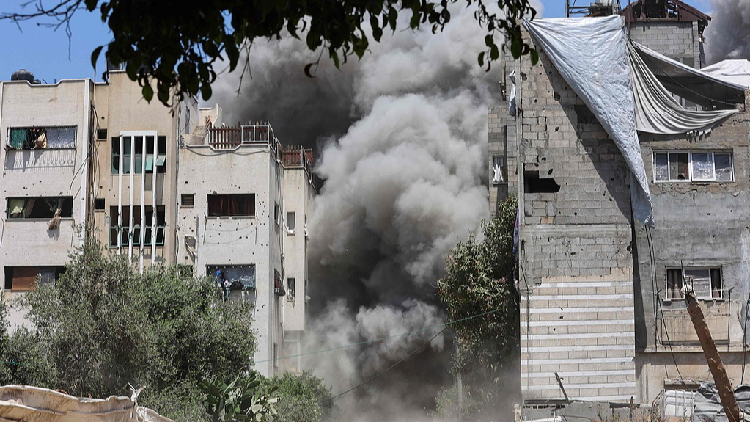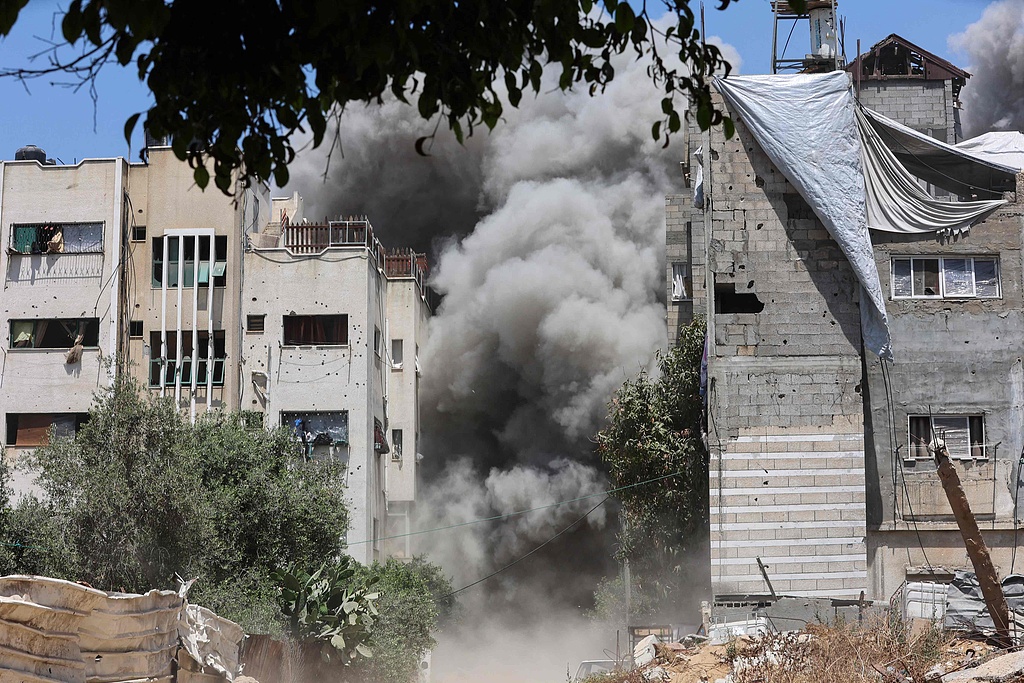Hamas Opposes U.S. Gaza Plan; Witkoff Labels Proposal 'Unacceptable'
Hamas demands changes to US Gaza ceasefire proposal; U.S. envoy calls response "totally unacceptable."


Hamas announced on Saturday that it is seeking amendments to the latest U.S.-backed ceasefire proposal for Gaza, prompting swift rejection from U.S. special envoy Steve Witkoff, who labeled the group’s response as "totally unacceptable." The diplomatic back-and-forth comes during a period of escalating violence and mounting casualties in the besieged enclave.
The current proposal, heavily promoted by Washington in a bid to halt the fighting, calls for a 60-day pause in hostilities. Under its terms, 28 out of the 58 hostages believed to be held in Gaza would be released in exchange for the freeing of over 1,200 Palestinian prisoners. Additionally, the plan envisions a significant increase in humanitarian aid flowing into Gaza—where basic supplies have been dwindling since the onset of the conflict.
Health authorities in Gaza report the toll from months of warfare has now reached 54,381 dead and 124,054 wounded since October 7, 2023. The resumption of Israeli operations on March 18 alone has led to more than 4,000 deaths and over 12,000 injuries, according to local officials.
Hamas, while indicating an openness to a truce, has set forth several new conditions. These include staging the release of all hostages in three phases over the duration of the proposed 60-day ceasefire, securing wider access for humanitarian aid throughout Gaza, and, most critically, guaranteeing that the temporary pause would culminate in a permanent ceasefire. Israel, however, has firmly rejected these demands, instead reiterating calls for Hamas’ disarmament, its removal from political power in Gaza, and the unconditional release of every remaining hostage.
Israeli Prime Minister Benjamin Netanyahu issued a statement confirming his government’s acceptance of the U.S.-backed outline, but accused Hamas of continued rejectionism. "Israel will continue its action for the return of our hostages and the defeat of Hamas," Netanyahu stressed.
Responding to Hamas' latest proposal, Special Envoy Witkoff made his dissatisfaction clear on social media, writing, "It is totally unacceptable and only takes us backward. Hamas should accept the framework proposal we put forward as the basis for proximity talks."
Shortly after Witkoff’s remarks, senior Hamas official Basem Naim countered allegations that his group had turned down the American offer, arguing Israel’s version of the deal diverged from prior discussions. He also accused the U.S. envoy of exhibiting "complete bias" toward Israel.
In a separate statement, Hamas reiterated its demand for a permanent ceasefire, a full Israeli withdrawal from Gaza, and unimpeded humanitarian access. The group offered to release 10 living hostages and the bodies of 18 others in exchange for what it called an “agreed-upon number” of Palestinian prisoners.
Meanwhile, Israel appears to be preparing for a possible escalation in northern Gaza. State-owned television reported Saturday that military operations are likely to intensify in response to Hamas’ position. Defense Minister Israel Katz issued a warning to Hamas, stating the group must "accept the deal or be destroyed."
Tensions were further heightened when Israel’s military announced the killing of Mohammed Sinwar, a top Hamas commander and head of the group’s military arm in Gaza, during an airstrike conducted earlier this month.
The fragile situation follows the collapse of a previous ceasefire that began in January but ended in mid-March with the renewal of Israeli operations. In the run up to new offensives, Israeli forces closed border crossings and curtailed aid on March 2. Humanitarian access has only partially resumed since late May, leaving many in Gaza in increasingly dire circumstances.




